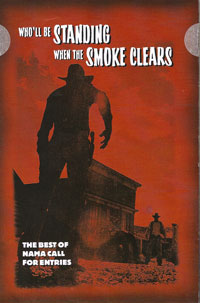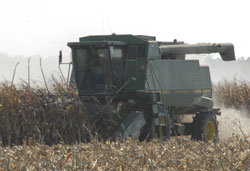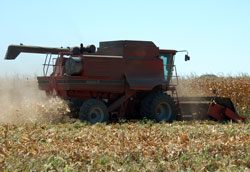 The man known as the “Ethanol God-Father” is set to tackle the “myths” about ethanol in Oregon, Illinois, Wisconsin and California. Blume will be giving speeches at various Renewable Energy Conferences and Seminars. The “Bio-expert” will also be featured on XM radio and T.V.
The man known as the “Ethanol God-Father” is set to tackle the “myths” about ethanol in Oregon, Illinois, Wisconsin and California. Blume will be giving speeches at various Renewable Energy Conferences and Seminars. The “Bio-expert” will also be featured on XM radio and T.V.
The International Institute for Sustainable Agriculture has announced that its founder and current Executive Director, David Blume has been asked to appear on radio, TV and as a lead speaker for a number of renewable energy symposiums in the coming two months. Blume is globally acknowledged as the “god-father” of ethanol and is a leading advocate and expert on renewable solutions to the global need for inexpensive, non-polluting, and sustainable energy and food sources.
Blume’s coming talks provide unrivaled insight into the practicality of transforming US energy production and use to a totally sustainable model. Blume presents myth-busting facts, scientific data, and proven methodologies that give audiences a revolutionary first-person look at truly sustainable solutions to global warming, green house gas emissions, food resource issues as well as provide them with a road-map to a new post-oil economy.
As part of his coming in-person appearances, Blume will be a featured guest on the Thom Hartmann Radio Program. Now in its fifth year of national syndication and heard globally on XM and Sirius satellite radio, Hartmann’s program is carried in 7 of the nation’s top 10 media markets and 14 of the top 25 markets. Hartmann is also a featured commentator in the new Leonardo DiCaprio environmental documentary The 11th Hour.
Read More



 A new era and a new president for
A new era and a new president for  I’m guessing most of you are not online reading AgWired this weekend and I’m not doing a lot of posting either. It is “Labor Day” weekend after all. However, just in case you’re taking a peek now (or later this week). . .
I’m guessing most of you are not online reading AgWired this weekend and I’m not doing a lot of posting either. It is “Labor Day” weekend after all. However, just in case you’re taking a peek now (or later this week). . .  This is what I saw a lot of coming home from the Farm Progress Show and then again today when I was out in the field.
This is what I saw a lot of coming home from the Farm Progress Show and then again today when I was out in the field. A large one crossed over the highway in front of me at one point carrying a lot of corn trash with it. It was interesting to see swirling corn leaves moving through a soybean field which was on the opposite side of the highway from where it started.
A large one crossed over the highway in front of me at one point carrying a lot of corn trash with it. It was interesting to see swirling corn leaves moving through a soybean field which was on the opposite side of the highway from where it started.